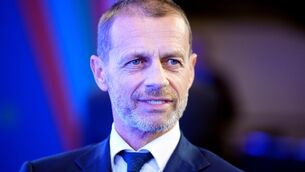Fergie chooses words all too carefully

Naturally, it was concerning the one grand omission from ‘My Autobiography’; the elephant — or perhaps the horse — in the room: Rock of Gibraltar.
It was the closest he came to one of his classic “I’m nae gettin’ into that” moments.














